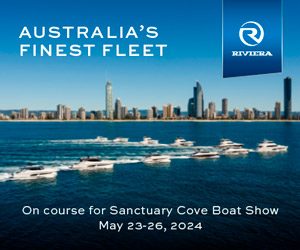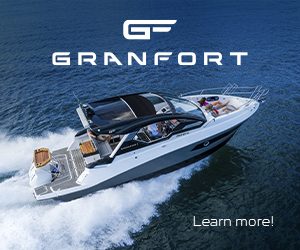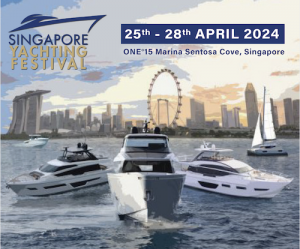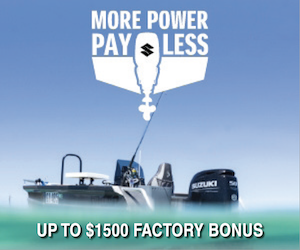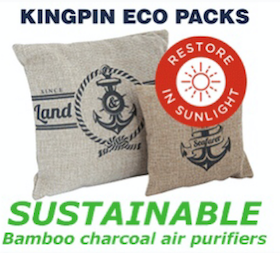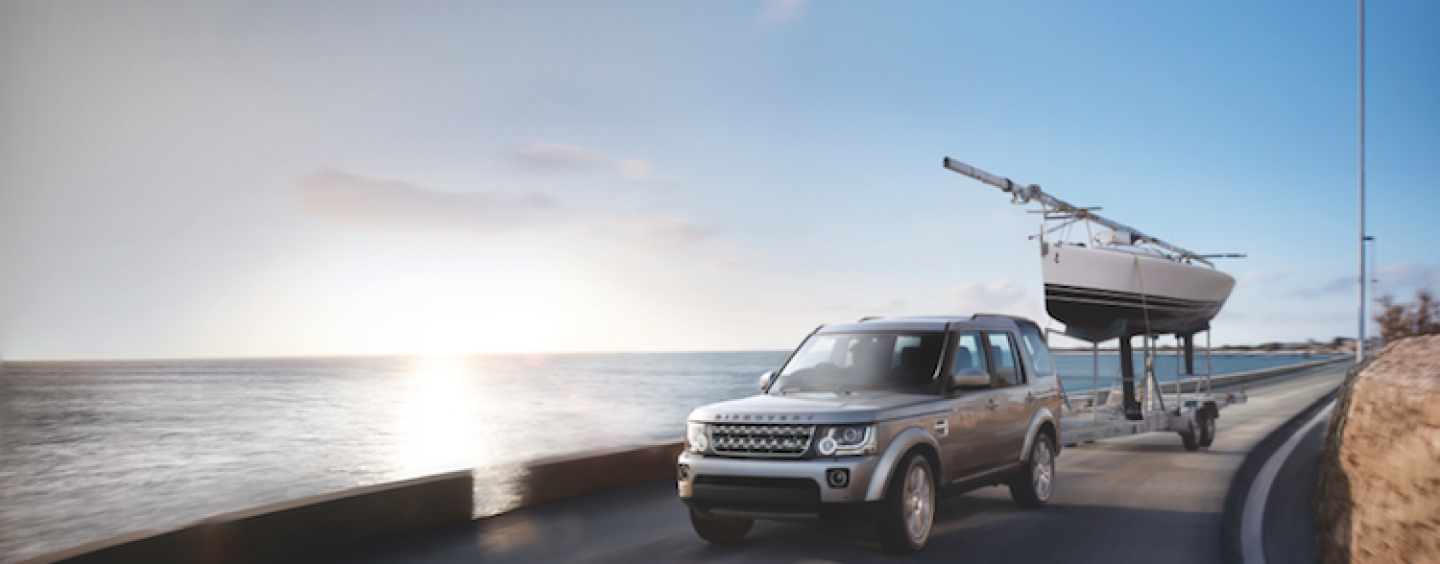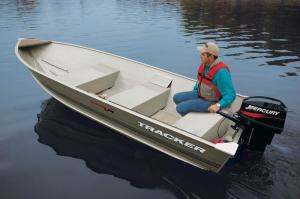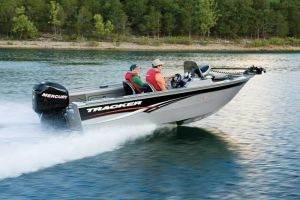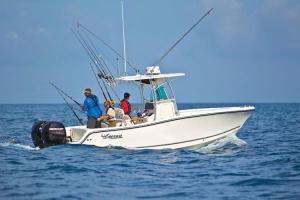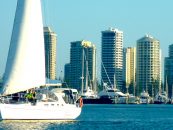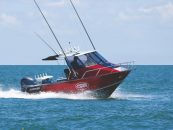In the previous issue of Boat Gold Coast, we introduced general tips on how to buy a boat. Here, we go further by providing advice for people buying a trailer boat. Tim Stessl, a recognized boat builder and sales manager on the Gold Coast, gives practical guidelines to help you decide.
When buying a boat, it is important to consider many things before making a final decision. From the number of people you are going to have in the boat on a regular basis, the water conditions you are most likely to use the boat, the budget you have allotted, to the running, maintenance and storage costs, etc., the list can go on and on.
Here are some technical aspects of your new boat that you should investigate prior to the big decision.
Boat Length
When deciding on the boat length, there are several considerations depending on the number of maximum users and the waters on which you will use the boat.
The regulations translate to one (1) adult per metre of boat. Therefore, a 4.2m boat is licensed to carry a maximum of four (4) adult passengers.
Below is a quick guide on specified waters for various boat lengths:
| Boat Length | Ideal Waters |
| 4.2m and below | lakes and rivers |
| 4.4m-4.79m | lakes, rivers and larger bay/harbours |
| 4.85m-5.5m | lakes, rivers, bay/harbours and close offshore |
| 6m and above | lakes, rivers, bay/harbours and close offshore, open water (Your level of experience will determine how far you want to venture offshore.) |
Tinnie Boats
The advantage of a tinnie is that it is light, easy to handle on your own and economical to run and maintain. The downside is that some tinnie designs are hard-riding and not so stable. Only a water test will prove how it performs. Try asking boaties at the ramp about their boats to have an idea on boat performance.
With a tinnie, you get what you pay for. The more expensive boats will have a better build, design and superior material quality, as well as money invested in research and development (R&D) to ensure better performance and a longer life. The cheaper tinnie boats do not last very long without problems, sometimes not even past the warranty period. While most owners will keep their tinnies for a long time, if you do decide to sell, then a quality brand name will ensure a higher resale value.
When choosing the engine size, consider the maximum horse power (HP) rating if you plan to load the boat with the maximum number of passengers allowed. If you carry only one or two people, then determine the minimum and maximum HP, and buy an engine in the middle of the two ratings.
Runabouts
If you are deliberating over a centre console versus a forward steer runabout with windscreen, here are some ideas. A centre console is mainly used by fishermen without young families to consider, as they want maximum fishing room and are not concerned about the elements. Forward steer runabouts are the perfect family boat, as they have the protection of the windscreen and foredeck yet still have plenty of cockpit space to fish. Most are fitted with a removable rear lounge when the kids are not in the boat.
The bow rider is becoming the must-have all-round boat if you do more family boating, tubing or skiing, exploring or cruising with the odd fishing trip with mates. The drawback is it has an open bow and the rear cockpit is shorter than that in a runabout. If fishing is more your style, then choose the runabout.
Cabin boat
The cabin boat is popular in the southern parts of Australia, as they have more shelter from the elements due to the cabin space and is easily fitted with camper covers and clears. To sleep in a cabin boat, you need at least a half cabin, not a cuddy cabin. Most half-cabin boats start at 5.6 metres long. A cuddy cabin will suit young kids to have a nap, but the main reason behind a cuddy is for weather protection and extra storage.
The difficulty of a cabin boat is that you will access the anchor via a forward hatch as opposed to direct access in a bow rider. Moreover, the cabin boat will not fit under a standard garage or shed. It is slightly heavier to tow and will need a larger outboard than a runabout of the same length.
Inhsore and Offshore
When travelling inshore, your decision is a personal choice as most boats will perform well in smooth waters. But keep in mind that the weather can change at any time, so hull design, beam, depth and build construction then come into play.
If you are heading offshore, your decision requires more thought. You need to search for a well-constructed boat and study the amount of development that has been undertaken with the hull design. The more hull R&D, the smoother your boating experience. Even a poorly designed fiberglass boat can be hard-riding offshore, while some tinnies with enhanced design will perform better than some of the glass boats.
Aluminium vs. fiberglass
When considering boats under 5.6 metres, it is hard to go past well-designed aluminium boats as they are easier to use, store, run and maintain.
Fiberglass is the choice of boat for offshore conditions from six (6) metres and over. An aluminium boat over six (6) metres needs to be of thick aluminium plate construction. So this added weight places you at the same weight as a fiberglass boat. The aluminium plate boat will need a greater HP motor and a larger 4×4 towing vehicle which all means higher running costs, so you may as well purchase a fiberglass boat.
A well designed six (6) metre fiberglass boat will outperform most aluminium six (6) metre boat when comparing ride, comfort, quietness and stability. The fiberglass boat will need at least a 20 degree-vee hull with nice wide reverse chines and the dry hull weight around 900 kg. A deep-vee hull with reasonable weight means a soft ride with increased stability.
New vs Used?
If you have the money and intend to eventually pass it on to your children, you should buy a new boat so you can choose the brand and style you desire. A new boat will be covered by a warranty and there will be no hidden repair costs, or strandings at sea.
A used boat will be cheaper than a new one. However, your ideal choice might be limited by availability. You might have to compromise colour, motor brand and desired accessories, and in some cases an unknown history of the boat.
Sometimes, it might be better to buy a smaller new boat of your choice with warranty rather than a larger used boat. But if you are an experienced boat owner and you have the patience to wait for that ideal used boat, then you will reap the rewards.
When you finally buy your boat, know that your skill level will develop only with experience. Go slow when starting out, and get to know your boat first so you can then venture further and wider while gaining water capability. Do not scare your wife and kids on the first outing. Pick a nice sunny day with low wind and go somewhere quiet, without a lot of other boats out on the water. Enjoy!
Tim’s Check List
Deciding on a Boat Dealer
- What brands do they stock and why have they chosen to sell these brands?
- Make sure the Boat Dealer service department is as helpful as the guy selling you the boat. You will deal with the service department from the point of purchase onwards.
- Do they have repeat customers?
During an on-water test
- Be conscious of the boat’s stability, ride, softness and dryness.
- Will the boat still perform when loaded with the number of persons you plan to carry?
- How does the boat load and unload from the trailer?
Towing vehicle considerations
Calculate the weight of the full load including boat, motor, trailer and all the gear you will carry. Compare this against the weight capacity of both trailer and the tow vehicle. As long as your full load does not exceed the tow vehicle’s capacity, an all-wheel-drive (AWD) car or SUV will be suitable for towing. Most boat ramps are slippery or covered with sand, so AWD and 4WD vehicles are better suited for the task.
Disclaimer: The views expressed here are solely those of the author in his private capacity and do not in any way represent those of Boat Gold Coast Magazine. These tips serve as a guide to conducting your own research before buying a boat.
By Andy Kancachian – interview with Tim Stessl


